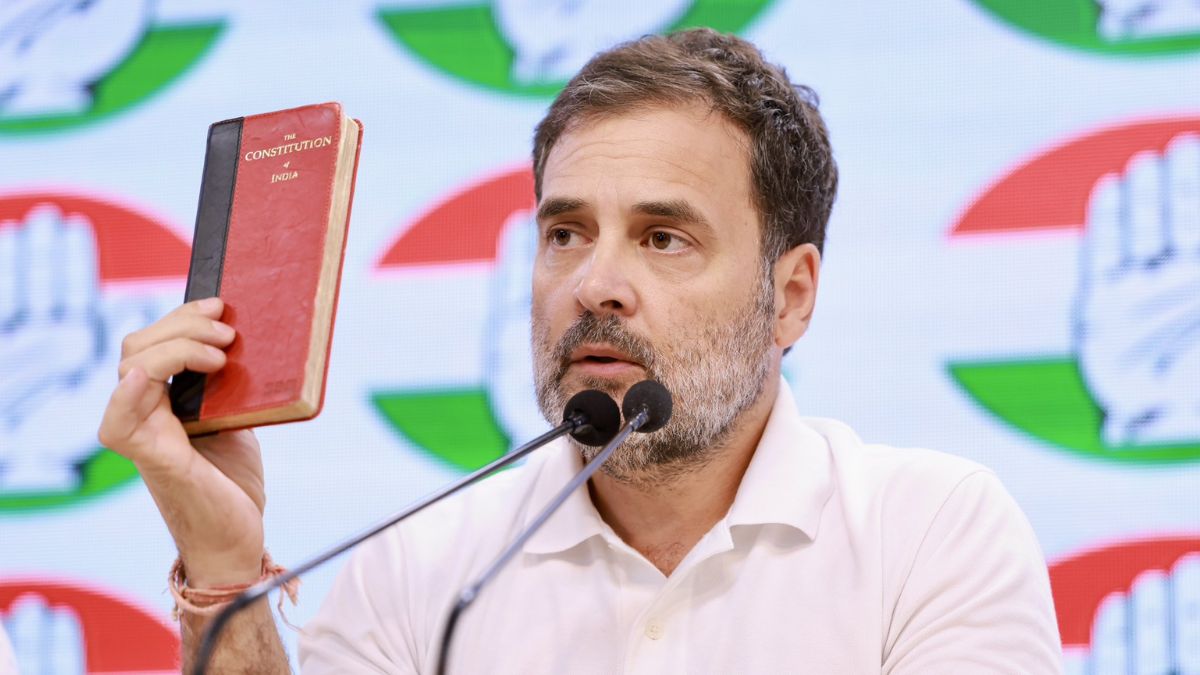
Texas: Rahul Gandhi, the Leader of the Opposition in Lok Sabha, while interacting with the students at the University of Texas, Dallas in the US, said that Bharat Jodo Yatra introduced the idea of love in politics.
Elaborating on the reasons for conducting the Bharat Jodo Yatra, Rahul Gandhi said, “The reason [behind conducting Bharat Jodo Yatra] is that all avenues of communication in India were shut. No matter what we did, it was all shut. We spoke in parliament. That’s not televised. We go to the media, they don’t pick up what we say. We even go with documents to the legal system, and nothing happens. So all our avenues were shut. And for a long time, we literally couldn’t understand how to communicate. And then suddenly we hit upon the idea… what better way to go directly than to go walking across the country? And so that’s what we did…”
“But it went surprisingly easy. And it fundamentally changed the way I think about my work… It completely changed how I view politics, how I view our people, how I communicate, how I listen. To me, the most powerful thing that happened organically was that we introduced certainly for the first time in India, possibly for the first time in many countries, the idea of ‘love’ in politics. And this is strange… because… [in] the political discourse in most countries, you will never find the word ‘love’… You’ll find hatred, anger, unfairness, corruption… and the Bharat Jodo Yatra introduced that idea into the Indian political system, and it has amazed me how that idea has worked,” he said.
The Congress leader also said that India has to think about the act of production and organising production.
“India has to think about the act of production and organising production. It’s not acceptable that India simply says, manufacturing or production is going to be the reserve of the Chinese… or Vietnamese… or Bangladeshis. Bangladesh completely outcompetes us in textiles, regardless of the problems they’re facing right now… We have to reimagine how to produce in a democratic environment. Until we do that, we will face high levels of unemployment. And frankly, it’s not sustainable. So… if we carry on down this path… you’re going to see massive social problems coming in India and in the United States and Europe. The polarization of our politics is because of this,” he said.
Talking about issues faced by the youth due to unemployment, the Raebareli MP said that the act of production creates jobs. But India organises consumption, which is the reason for worry.
“If you look at the United States in the 1940s, 50s and 60s, they were the centre of global production. Anything that was made- cars, washing machines, TVs- all made in the United States. Production moved from the United States… [then] to Korea, [from there] it went to Japan. Eventually, it went to China… China is dominating global production. [In] India, the phones… furniture… clothes, [most are] made in China. That’s a fact. The West, America, Europe, and India have given up on the idea of production and they’ve handed it to China. The act of production creates jobs. What we do, Americans do, the West does, is organize consumption. Uber, Foxconn, Mahindra, and Bajaj organize production. These are the guys who create the jobs…”
Gandhi added that not all countries have an employment problem.
“Let’s be clear. Not everywhere on the planet has an employment problem. The west… [and] India has an employment problem. But many countries in the world don’t have an employment problem. China… [and] Vietnam doesn’t have an employment problem. So there are places on the planet that are not struggling with unemployment. There’s a reason,” he said.




